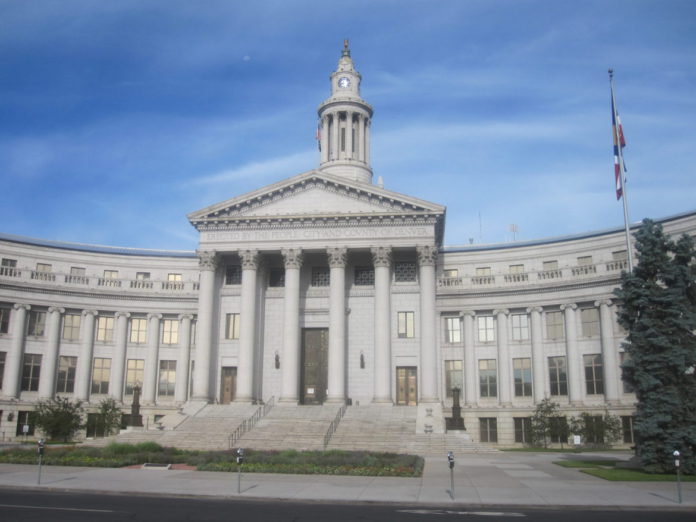
A Denver judge on Sept. 3 found the city’s camping ban constitutional, upholding the law and overturning a decision from a county court judge.
The city’s camping ban has been on the books since 2012 and was challenged last year, shortly after voters turned down a ballot measure that would have removed it. The court challenge was raised on constitutional grounds, similar to a challenge to a camping ban in Boise, Idaho, which resulted in the 9th Circuit Court of Appeals declaring that city’s law unconstitutional.
Denver District Judge Eric Elliff found that the other jurisdiction’s decisions didn’t have authority in Denver, though, and that the county court’s ruling went a step further than the 9th Circuit in applying an even broader finding. The camping ban in Denver is still in effect, and the city has indicated that it will continue to enforce it, though an appeal is likely.
The Denver case started when Jerry Burton in April 2019 was ticketed for violating the camping ban by camping on public property while he was homeless. He pleaded not guilty and argued that the camping ban violated the Eighth and 14th amendments.
Burton’s facial constitutional arguments were that the camping ban was “cruel and unusual punishment” in that it was focused specifically on homeless individuals and punished him for his status as homeless.
The trial court found Burton was homeless at the time he was ticketed, that he was given – and refused — an offer to go to a homeless shelter, and because he took down his tent, he was not arrested. That court, in citing a 9th Circuit decision, found that Denver’s camping ban was unconstitutional.
The 9th Circuit court wrote that “so long as there is a greater number of homeless individuals in a jurisdiction than the number of available beds in shelters, the jurisdiction cannot prosecute homeless individuals for involuntarily sitting, lying and sleeping in public. That is, as long as there is no option of sleeping indoors, the government cannot criminalize indigent, homeless people for sleeping outdoors, on public property, on the false premise they had a choice in the matter.”
The Denver case differs from the Idaho lawsuit, Martin v. City of Boise, in that the 9th Circuit decision hinged on the fact Boise did not have available shelter for individuals who were cited for violating the city’s camping ban. The shelter issue came up in a recent Oregon case where a defendant received jail time for repeatedly violating Portland’s camping ban. In that case, the defendant did not demonstrate that there wasn’t room in a shelter for her. And in Denver, Burton was offered and refused space in a shelter.
Elliff also analyzed the constitutional challenge, noting that a facial challenge required Burton to demonstrate that the ban was unconstitutional in all its applications. Judge Elliff wrote that the ban is facially constitutional and that the Eighth Amendment challenge failed because “the Ordinance facially applies to anyone, homeless or not, who might decide to camp on public property within the City and County of Denver” and went on to write “the Ordinance does not criminalize status. It criminalizes an activity.”
Denver’s case is likely to be appealed to the state Court of Appeals. Denver City Attorney Kristin Bronson acknowledged in other news reports that the city will continue to enforce the ban due to the long appeals process.
— Tony Flesor

